Quietly gliding through the African bushveld, electric safari vehicles are revolutionizing the traditional game drive experience. Part of a much larger trend in the industry that is seeing sustainable alternatives become the norm, these silent safari cruisers are at the cutting edge of innovation. The benefits are two-fold. Not only does the environmentally responsible shift from fossil fuel to electric create zero emissions, it also massively enhances the overall safari experience.
Preserving Africa’s natural resources is imperative to Ker & Downey® Africa. And so is ensuring an exclusive and eco-friendly safari experience for our clients. That is why we have crafted a set of pioneering sustainable African safaris that evolve with our traveler and earth’s best interests at heart. We have our fingers on the planet’s pulse and are identifying more and more luxury safari lodges throughout Africa that are making great strides to preserve, provide and protect.
Making the shift from fossil fuel to electric is one such stride that is gaining more traction across the continent. From Kruger to Kenya, and Timbavati to Tanzania, we are seeing a host of lodges adopting this revolutionary development.
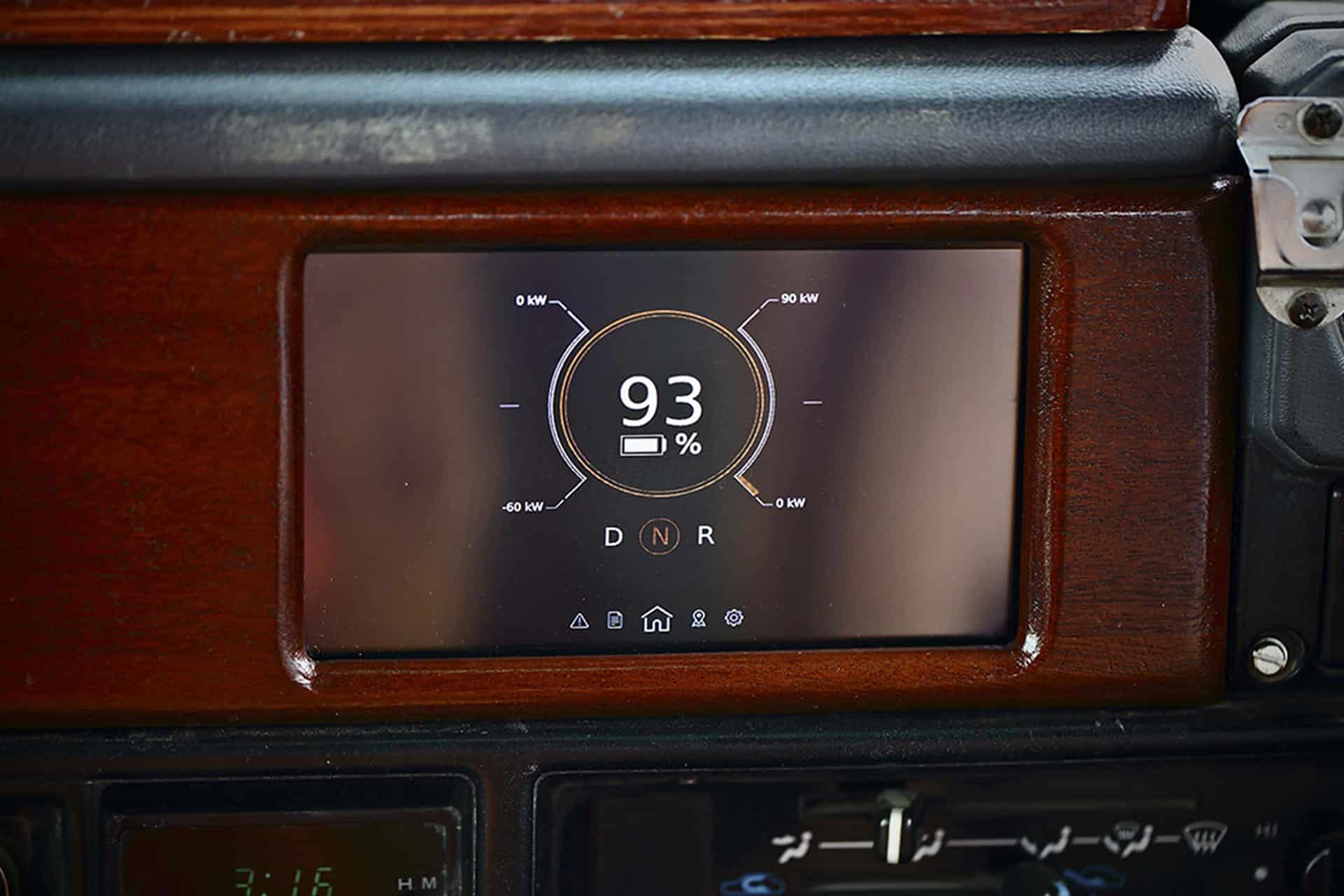
Ker & Downey® Africa’s latest 10 day Electric Vehicle Safari in Kenya invites guests to explore Kenya’s private conservancies at the forefront of wildlife conservation. Including Lewa Conservancy, Ol Pejeta Conservancy and Entamato bordering the Masai Mara. The itinerary exclusively uses solar-powered electric safari vehicles. These vehicles not only eliminate harmful fumes, but are almost completely silent meaning less disturbance for wildlife.
Here are some of the ways electric safari vehicles are transforming the landscape, changing the future of the game drive experience, and leaving the world a better place:
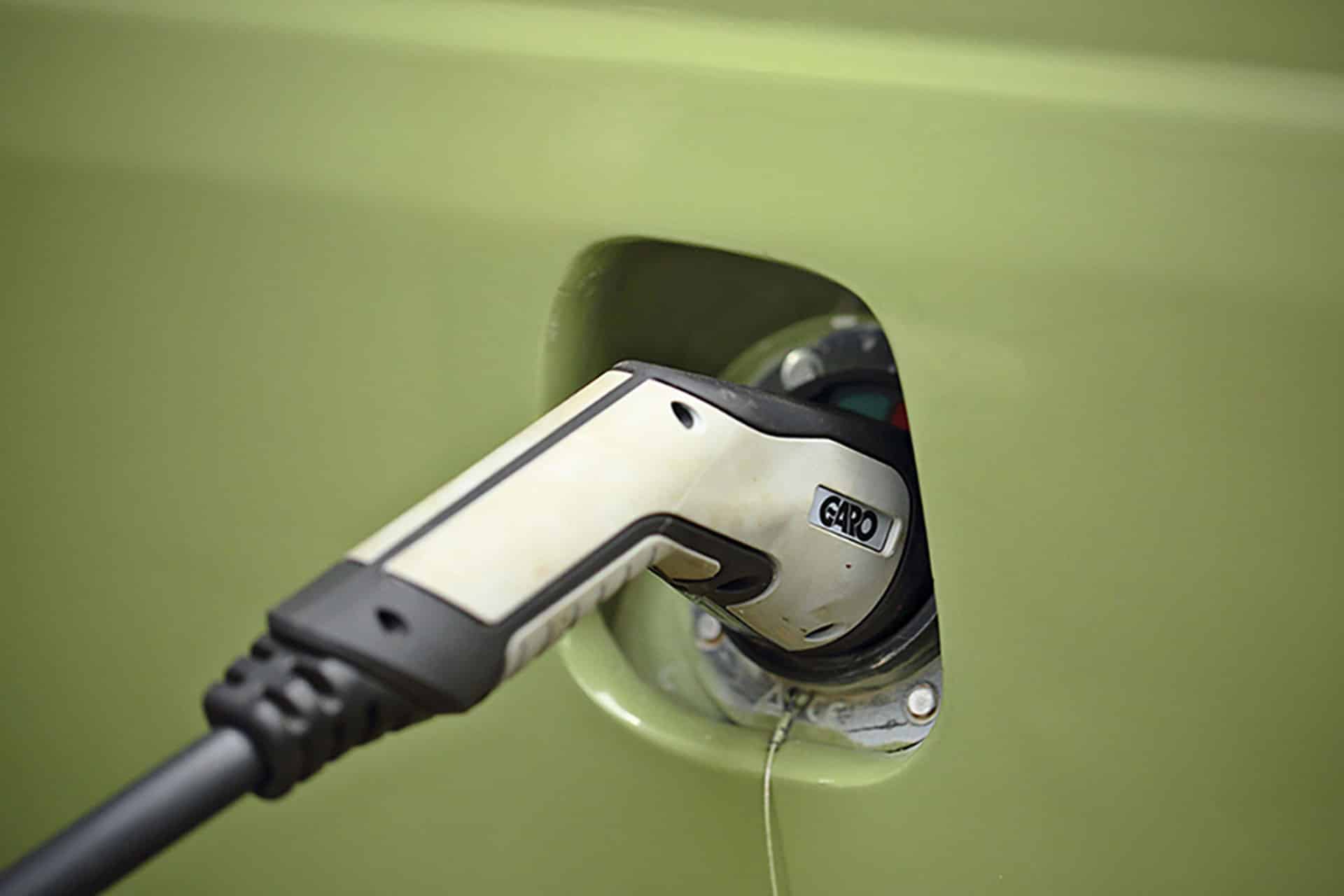
Of course, the most obvious benefit to converting to electric safari vehicles is the undeniable positive effect on the natural environment. Because the vehicles do not have exhaust pipes, there are no hazardous gases or substances being emitted into the air. No toxic diesel fumes mean the planet and its inhabitants can breathe far easier. The vehicles are also charged using the power of the sun. With so many lodges in Africa opting to go sustainable with solar, this ties in perfectly.
The quiet whirr of an electric safari vehicle packs some serious performance punch. Field guides who have made the switch to electric safari vehicles have nothing but praises to sing. Compared to its diesel counterpart, the electric 4×4 has a much lighter engine, making obstacles like rocks, water crossings, and soft riverbed sand easier to navigate.
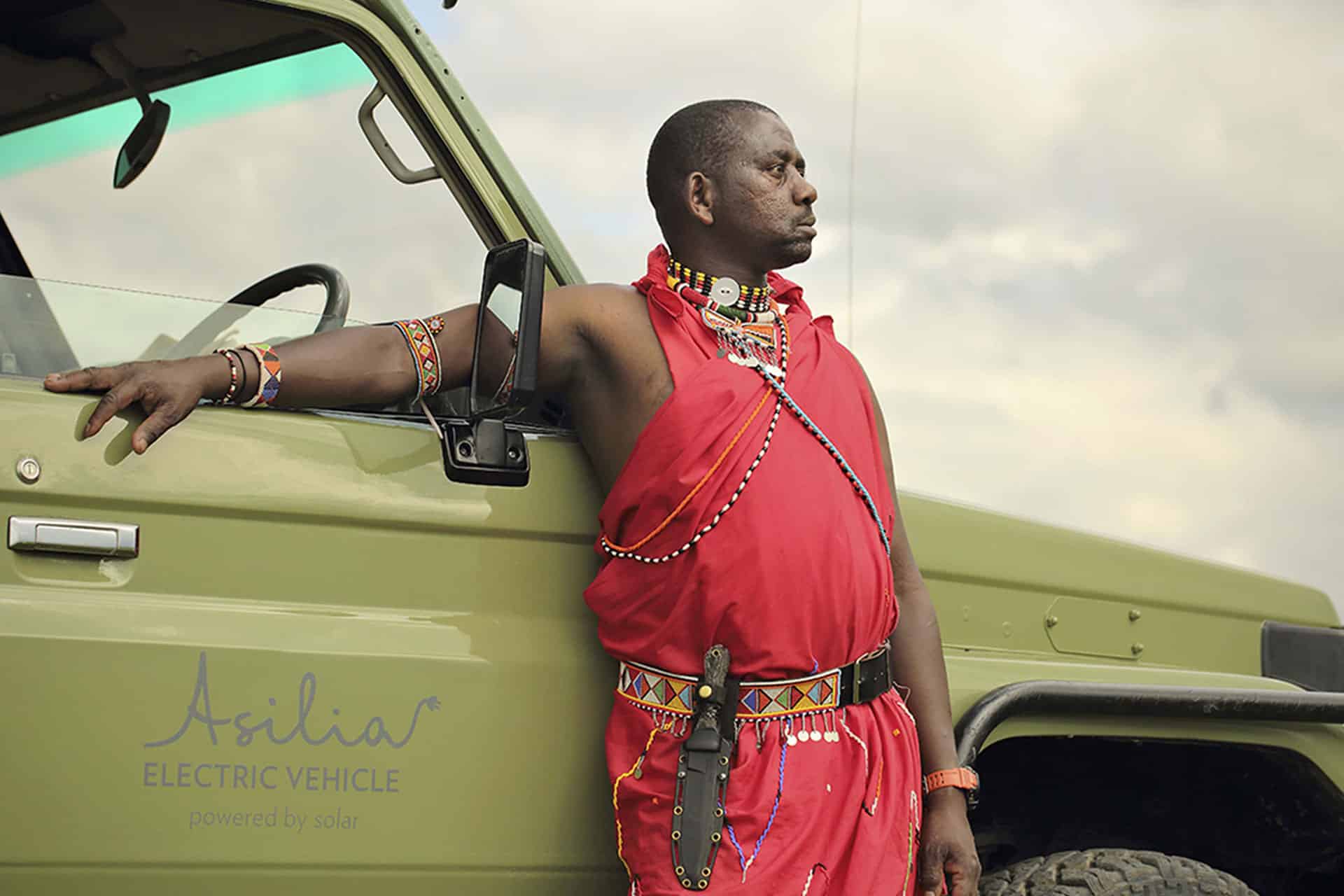
As well as possessing powerful 4×4 capabilities, the vehicles are able to provide max torque from drawing power from batteries instead of fuel, which is ideal in the tough terrain of the bush.
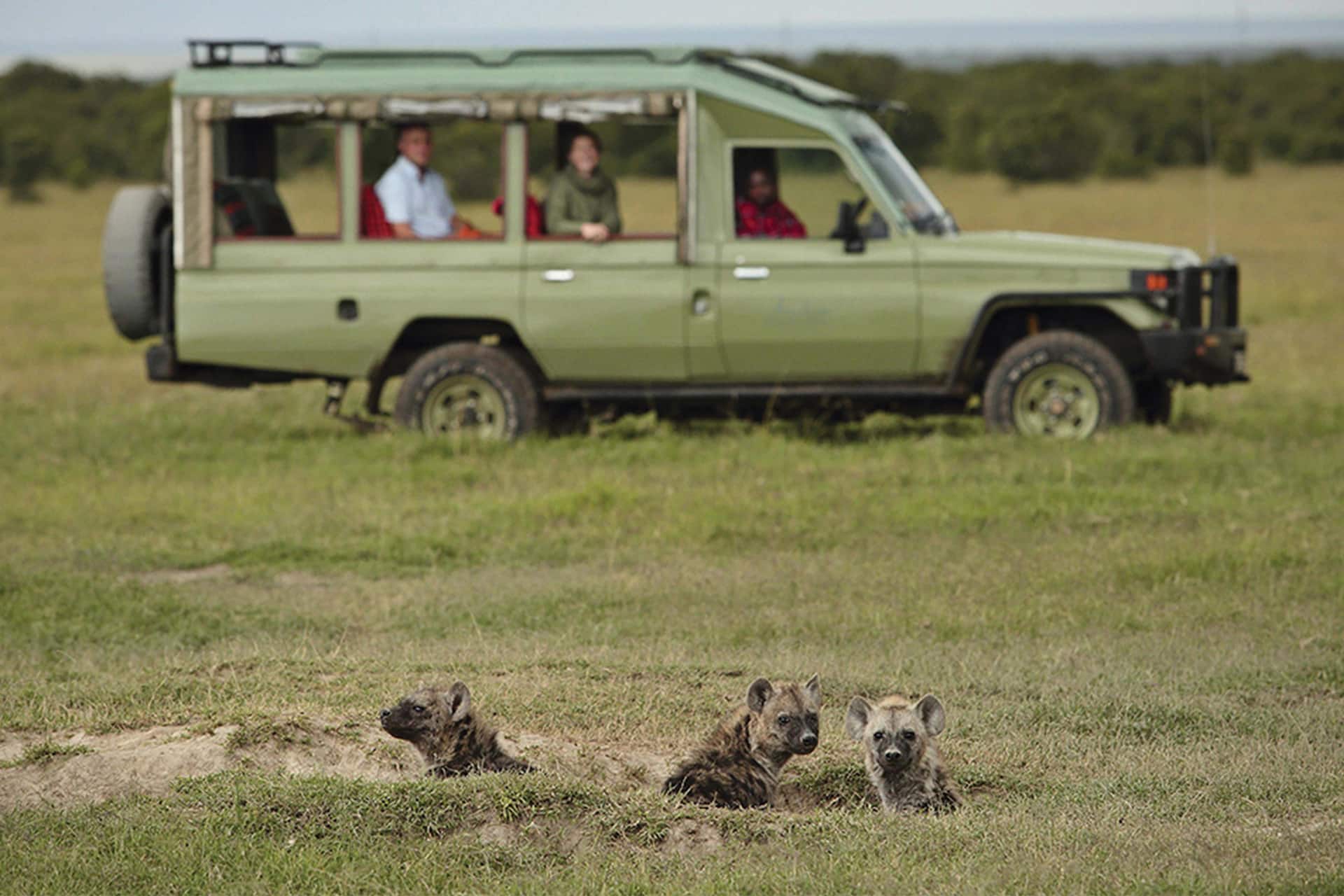
Everybody who has been on a safari in Africa is familiar with the deep rattle of the diesel engine as it chugs through the wilderness. An electric conversion turns the familiar roar into a gentle purr – almost completely soundless. The benefits to this are countless. But one obvious advantage of not having to contend with a rumbling engine, is being able to hear the sounds of the bush. This enables guides to track with far more efficiency, hearing alarm calls from afar, and even the slightest rustle of grass nearby indicating the presence of wildlife. The absence of noise pollution also does wonders for biodiversity, and can impact all kinds of animal behavior, including breeding.
Naturally, silence also completely transforms the experience of wildlife encounters. The quiet hum of the electric safari vehicle is not threatening to animals, meaning much more intimate rendezvous with the inhabitants of the bush.
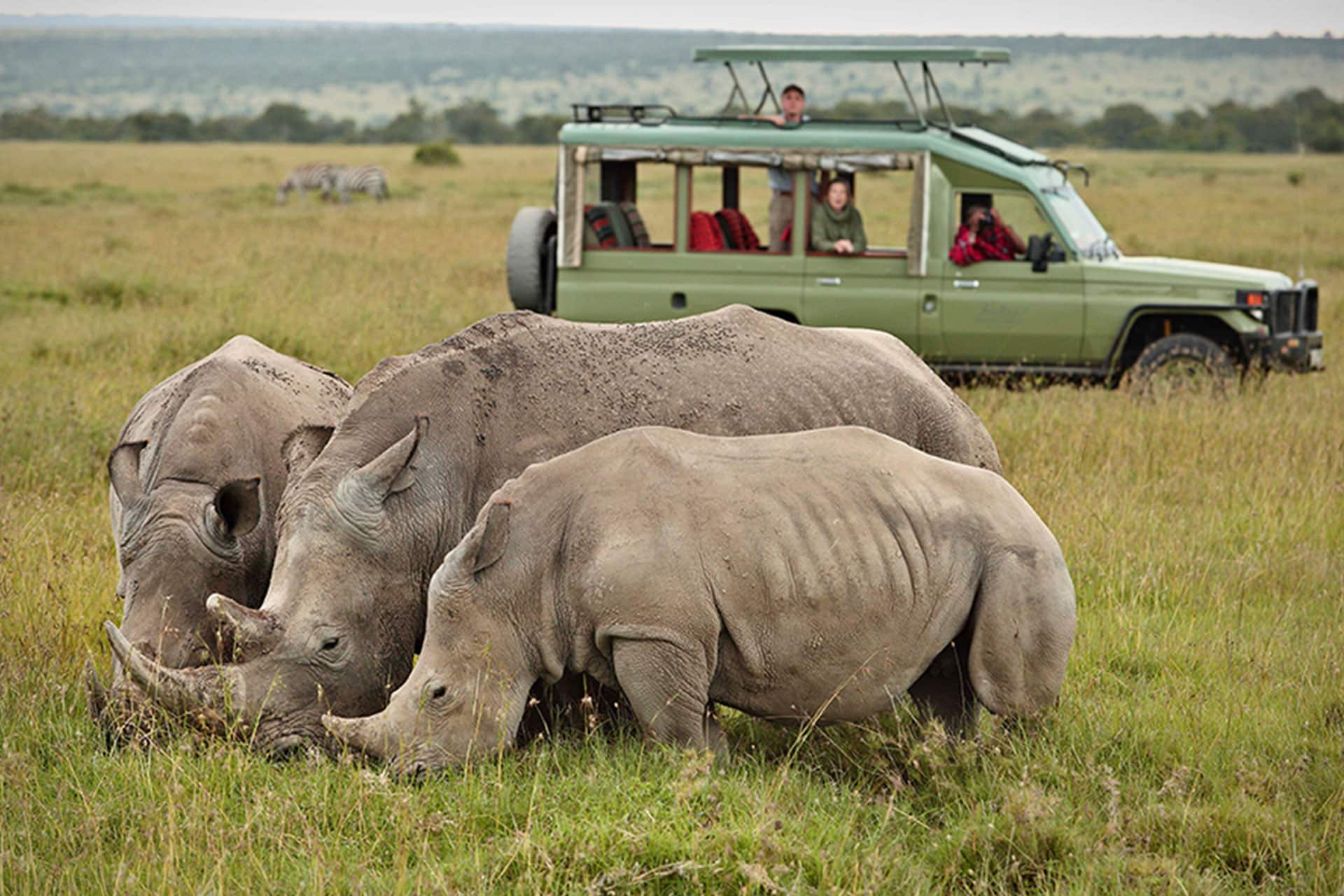
Shy, skittish animals like impala, who normally dart away at the sound of the engine, are far easier to approach. And those with notoriously volatile dispositions, like rhinos, don’t get as flustered by loud, cranking engines making for closer (and safer) encounters. The absence of sound also enables one to feel more connected to nature, much like the experience on a walking safari.
Get in touch with our LuxVenture® Designers to curate a one-of-a-kind electric vehicle safari experience today, and experience Africa like never before.
See you out there.
Head office:
7 Bree Street, 6th Floor, Touchstone House, Cape Town, South Africa
+27 (0)21 201 2484
[email protected]
United Kingdom: Sportsman Farm, St Michaels, Tenterden, Kent
Ker & Downey® Africa is compliant with COVID-19 Industry Protocols.


Head office: 7 Bree Street, 6th Floor, Touchstone House, Cape Town, South Africa
+27 (0)21 201 2484
[email protected]
United Kingdom: Sportsman Farm, St Michaels, Tenterden, Kent
Ker & Downey® Africa is compliant with COVID-19 Industry Protocols.